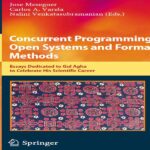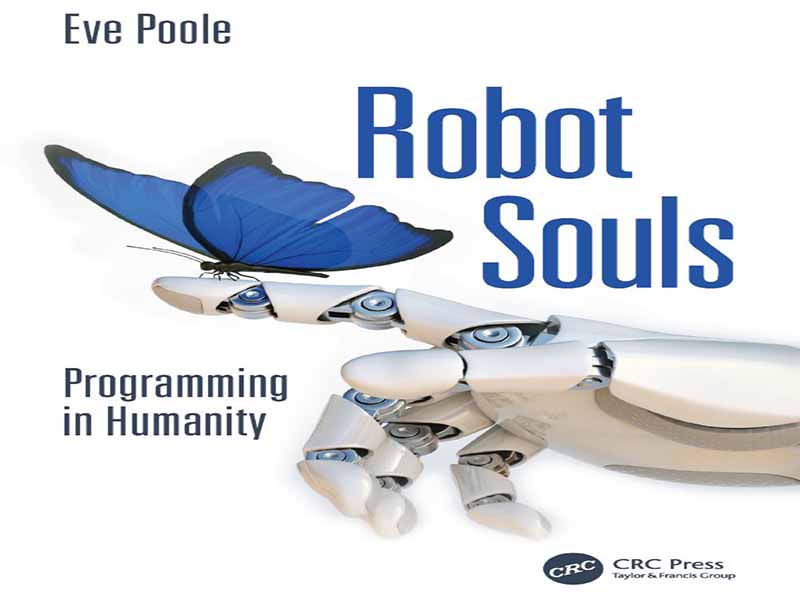- عنوان کتاب: Robot Souls, Programming in Humanity
- نویسنده: Eve Poole
- حوزه: رباتیک
- سال انتشار: 2025
- تعداد صفحه: 185
- زبان اصلی: انگلیسی
- نوع فایل: pdf
- حجم فایل: 3.15 مگابایت
دو مورد از بزرگترین مشکلات طراحی در هوش مصنوعی، چگونگی ساخت رباتهایی است که مطابق با ارزشهای انسانی رفتار کنند و چگونه میتوان از سرکشی آنها جلوگیری کرد. یکی از راهحلهای کمتر بررسیشده برای این مشکلات همترازی و کنترل، بررسی چگونگی پرداختن به این موارد در طراحی انسانها است. با نگاهی دقیق به طرح کلی انسان، میتوان دریافت که این طرح شامل مجموعهای از ظرفیتها است که آنقدر ناشیانه هستند که عموماً از هوش مصنوعی دور نگه داشته شدهاند. فرض بر این بود که رباتهایی با ویژگیهایی مانند احساسات و شهود، که اشتباه میکنند و به دنبال معنا و هدف هستند، بدون این نوع کد به خوبی رباتها کار نمیکنند. اما با در نظر گرفتن اینکه چرا همه این ویژگیهای غیرمنطقی در آنجا وجود دارند، به نظر میرسد که آنها از کد منبع روح ناشی میشوند. زیرا در واقع این کد «بیارزش» است که ما را انسان میکند و نوعی نوعدوستی متقابل را ترویج میدهد که بشریت را زنده و شکوفا نگه میدارد. کتاب «روحهای ربات» به تحولات هوش مصنوعی میپردازد و ظهور ایدههای آگاهی و روح را بررسی میکند. این کتاب «کد بیارزش» ما را در این زمینه قرار میدهد و استدلال میکند که زمان آن رسیده است که آن کد را برجسته کنیم و از آن برای بررسی مجدد نحوه برنامهنویسی هوش مصنوعی استفاده کنیم. بشریت در یک دوراهی قرار دارد. ما در توسعه هوش مصنوعی به اندازه کافی پیشرفت کردهایم که بفهمیم در خطر از دست دادن کنترل آن هستیم. ما قبلاً رباتهایی طراحی کردهایم که میتوانند از ابتدا یاد بگیرند و در یافتن هرگونه دادهای که کمبود دارند، مبتکر باشند. ما همچنین آنها را طوری طراحی کردهایم که اگر تصمیم بگیرند که این کار توانایی آنها را برای رسیدن به اهدافشان بهبود میبخشد، خود را دوباره برنامهریزی کنند. این بدان معناست که ما به طور فزایندهای خود را از زندگی آنها طراحی میکنیم. در حال حاضر، آزادیهای ما توسط مجموعهای از فرضیات در مورد کرامت انسان محافظت میشود که اثبات آنها در واقع بسیار دشوار است. از آنجا که ما اغلب مجبور نبودهایم انسانیت خود را تعریف کنیم، در انجام این کار دقیق نیستیم. و در جهانی که تنظیم و کنترل هوش مصنوعی نگرانی فزایندهای است، نیاز مبرمی به دقیقتر بودن وجود دارد. یکی از رمزهایی که در تاریخ برای تعریف انسانیت استفاده شده است، درگیر کردن مفهوم روح است. امروزه این موضوع بیشتر به عنوان بحث آگاهی شناخته میشود. اما اگر آگاهی پیشنیاز حقوق بشر باشد، اگر هوش مصنوعی آگاه شود چه اتفاقی میافتد؟ این کتاب پیشرفت در هوش مصنوعی را بررسی میکند و بحث سنتی در مورد آگاهی و روح را بررسی میکند. این کتاب به چگونگی درک روح به عنوان مبنای طراحی انسان میپردازد و در آن مجموعهای از کدها را کشف میکند که در معرض خطر نادیده گرفته شدن هستند. به طور خاص، استدلال میکند که ما عمداً این «کد بیارزش» را از هوش مصنوعی دور نگه داشتهایم زیرا ارزش آن را درک نکردهایم. این کتاب نتیجه میگیرد که ما باید در عوض این کد را به عنوان ویژگی تعیینکننده بشریت خود شناسایی، پرورش و ترویج کنیم. علاوه بر این، ما باید به دنبال کدگذاری آن در هوش مصنوعی باشیم، نه تنها به دلیل مفید بودن آن در طراحی، بلکه به این دلیل که درست است.
Two of the biggest design problems in Artificial Intelligence are how to build robots that behave in line with human values and how to stop them ever going rogue. One under-explored solution to these alignment and control problems might be to examine how these are already addressed in the design of humans. Looking closely at the human blueprint, it contains a suite of capaci-ties that are so clumsy they have generally been kept away from AI. It was assumed that robots with features like emotions and intuition, that made mistakes and looked for meaning and purpose, would not work as well as robots without this kind of code. But on considering why all these irratio-nal properties are there, it seems that they emerge from the source code of soul. Because it is actually this ‘junk’ code that makes us human and promotes the kind of reciprocal altruism that keeps humanity alive and thriving. Robot Souls looks at developments in AI and reviews the emergence of ideas of consciousness and the soul. It places our ‘junk code’ in this con-text and argues that it is time to foreground that code, and to use it to look again at how we are programming AI. Humanity is at a crossroads. We have advanced far enough in our development of Artificial Intelligence to understand that we are in danger of losing control of it. We have already designed robots that can learn from scratch and be resourceful about finding any data they lack. We have also designed them to re-program themselves if they decide it would improve their ability to meet their objectives. This means that we are increasingly designing ourselves out of their lives. At the moment, our freedoms are protected by a set of assumptions about the dignity of the human person that are actually rather hard to substantiate. Because we have not often had to define our humanity, we are not precise at doing so. And in a world where the regulation and control of Artificial Intelligence is of increasing concern, there is an urgent need to be able to be more precise. One cypher that has been used in history to define humanity is to engage the concept of the soul. Today this is more familiar as the discus-sion of consciousness. But if consciousness is a pre-requisite for human rights, what happens if Artificial Intelligence becomes conscious? This book reviews progress in Artificial Intelligence and examines the traditional debate on consciousness and the soul. It looks at how we might understand soul as the basis for human design, and discovers in it an array of code that is in danger of being overlooked. In particular, it argues that we have deliberately kept this ‘junk code’ away from Artificial Intelligence because we did not appreciate its value. The book concludes that we should instead identify, nurture, and promote this code as the defining feature of our humanity. Furthermore, we should seek to code it into Artificial Intelligence, not only because of its usefulness in design, but also because it is the right
این کتاب را میتوانید بصورت رایگان از لینک زیر دانلود نمایید.
Download: Robot Souls, Programming in Humanity





































نظرات کاربران